There are three areas where as a parent you have to appeal to the goodwill of your dear son or daughter! Eating, Sleeping and, of course, becoming toilet trained.
Many parents look forward to the day when their child is toilet trained. I know I did! It’s a victorious day when you finally get rid of that endless stream of diapers! Toilet training is something your little one should learn for himself but there are many things you can do to encourage him. With these tested tips, your child will hopefully become toilet trained faster and you will no longer have to buy diapers!
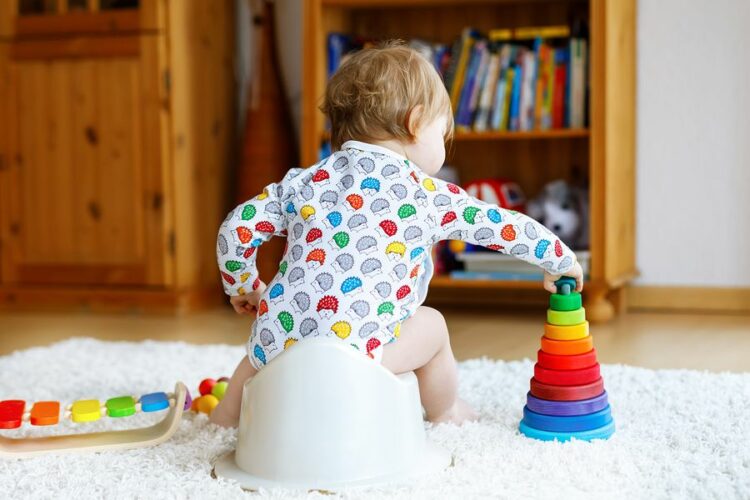
3 Phases of Toilet Training
Toilet training takes place in three main phases:
- Control over the urine during the day.
- This is followed by control of bowel movements during the day .
- Finally, control over urine and bowel movements at night .
From 1 to 2 years old, a child starts becoming aware of his bladder feelings. At the age of 2 to 3 years, a child can consciously start urinating and deliberately stop. From 4 years old there may already be dry nights.
11 Toilet Training Tips
1. Teach by examples
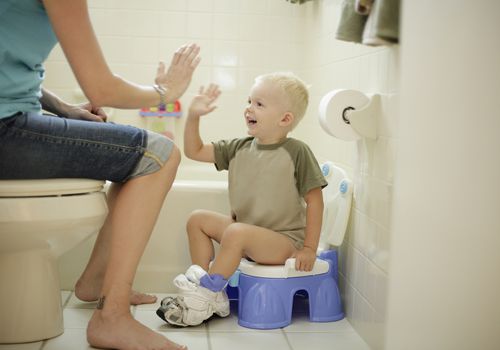
Show your child that mom and dad also go to the toilet. A child learns by imitating you. If needed, don’t hesitate to take the child with you to the toilet. You can also show them cute YouTube videos that encourage potty training.
2. Use a Convenient Potty
Use a simple potty (no bells and whistles) and make sure your child is comfortable. Make sure the potty bowl is not too low . If it is too low, a child will not be able to urinate and will be more prone to urinary tract infections.
The ideal potty grows with the child. Don’t push your child go to the large toilet bowl too early , or adjust the toilet seat by using a potty seat and a footstool. If a child is hanging in the toilet, he or she will not be able to urinate properly.
3. Appropriate Clothing
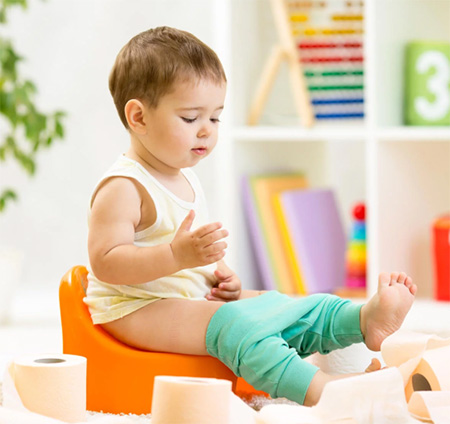
Ensure that your child clothes are easy to take on and off. Jeans with a difficult opening is not a good idea.
4. Punishments and Rewards
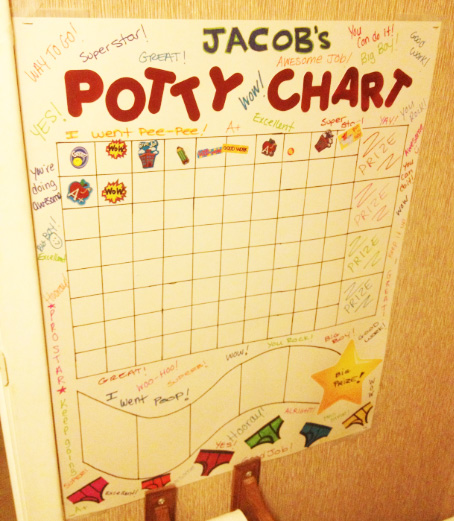
Never punish or scold your child for accidents during the training period. But you can discuss it with them and let them know that this is a part of their growing process. If you like, you can try a reward system. Give a sticker as a reward for every time your child informs you in advance and successfully uses the potty. But keep an eye on how your child responds to this. If the reward system is causing stress, abandon it immediately.
5. Don’t Rush
Let your child take the time and stay with them. If your child can’t produce anything after 3-4 minutes of sitting on the potty/toilet, its time to try later.
6. After-Potty Training
Train your child to wash her hands after using the potty. Also, after initially helping them to clean themselves, teach them how to clean properly.
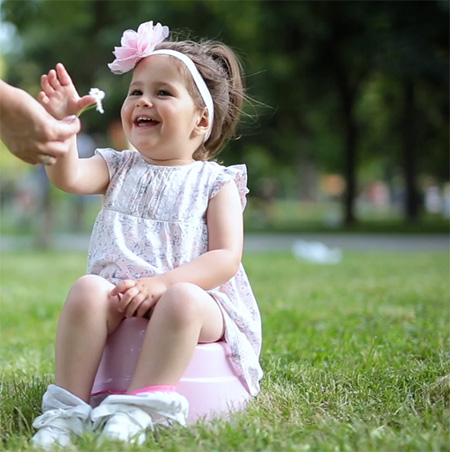
7. Have Patience
Do not pressure or nag your child to use the potty. The harder you push, the harder she will resist!
8. Figure Out the Signs
Only remind your child to use the potty when she is showing signs that she has to go. Don’t keep pushing them all the time. Take note of their actions and figure out the signs of when you think they might need to go.
But there is no harm in scheduling extra toilet visits. For example, when going out, it is best to take them to the toilet in advance.
9. Sufficient Fluid Intake
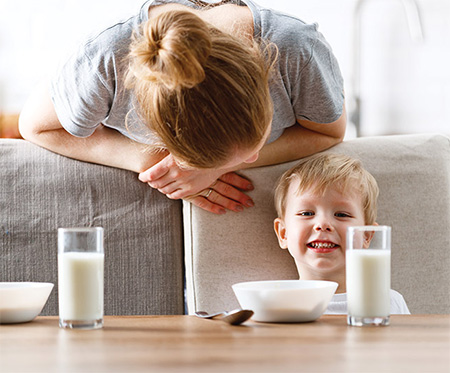
Sufficient drinking is very important. In order to feel the bladder movements and urinate, the child must drink enough fluids. What is consumed also has an influence on the bladder. So watch out for sugary drinks. Pay special attention to the evening meal. Excessive milk products, salty or sugared food will lead to a higher urine production and will lead to a higher chance of bedwetting.
10. Make them Familiar with the Terms
Acquaint your child with toileting terms early, by offering confirmation and instruction during diaper changes.
11. Don’t let them get comfortable with staying wet
Change your child’s diaper as soon as possible after soiling so she doesn’t become comfortable with, or even enjoy, being soiled.
To Sum it Up
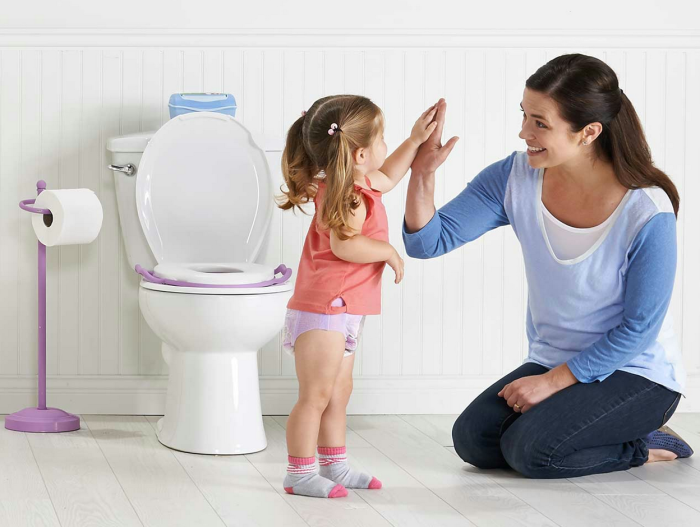
It is only your child who can decide when they will become potty trained. All you can do is give them the right environment and helpful aids. Don’t ever lose your calm because you are, and will remain, the most important supporter in your child’s development.
If you notice a problem with your potty training, stop and start again after a few days. Generally, there should be a problem only if
- A child is not potty trained during the day around the age of (3) -4 years
- A child is not potty trained at night around the age of (6) -7 years
Continence problems can also be hereditary. If family members have a history of incontinence, it can affect the child also. In all these cases, talk to your pediatrician.





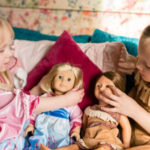
Much needed for me. As im training Shreyanshi these days. Thanx fr the tips
Bahut accha topic select kiya
Kitna details me sab clear bhi kiya, bahut helpful hai
Nuclear family me sari responsibility parents per rehti hai to baccho k liye ye training jaruri bhi hai
Nice tips u share…